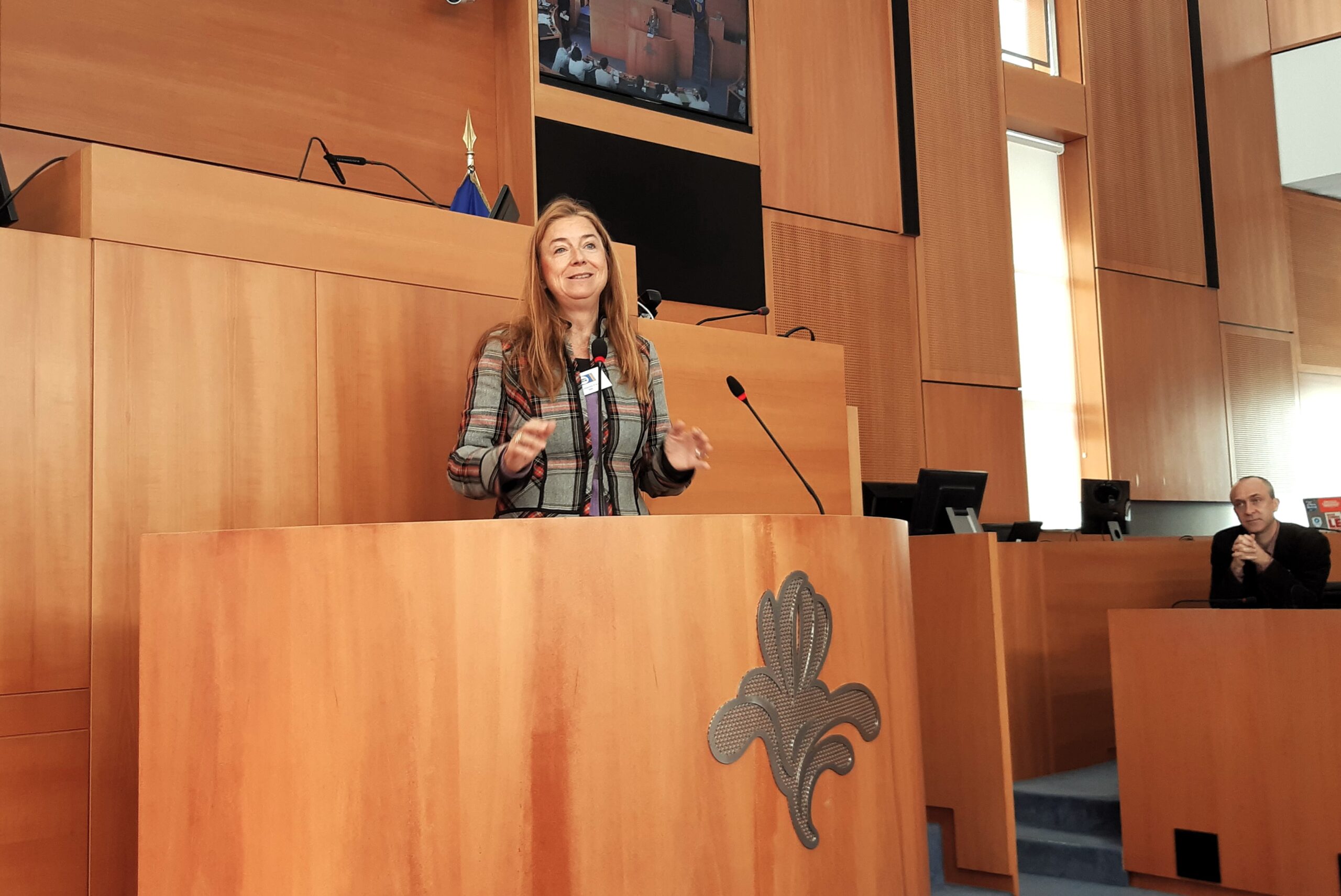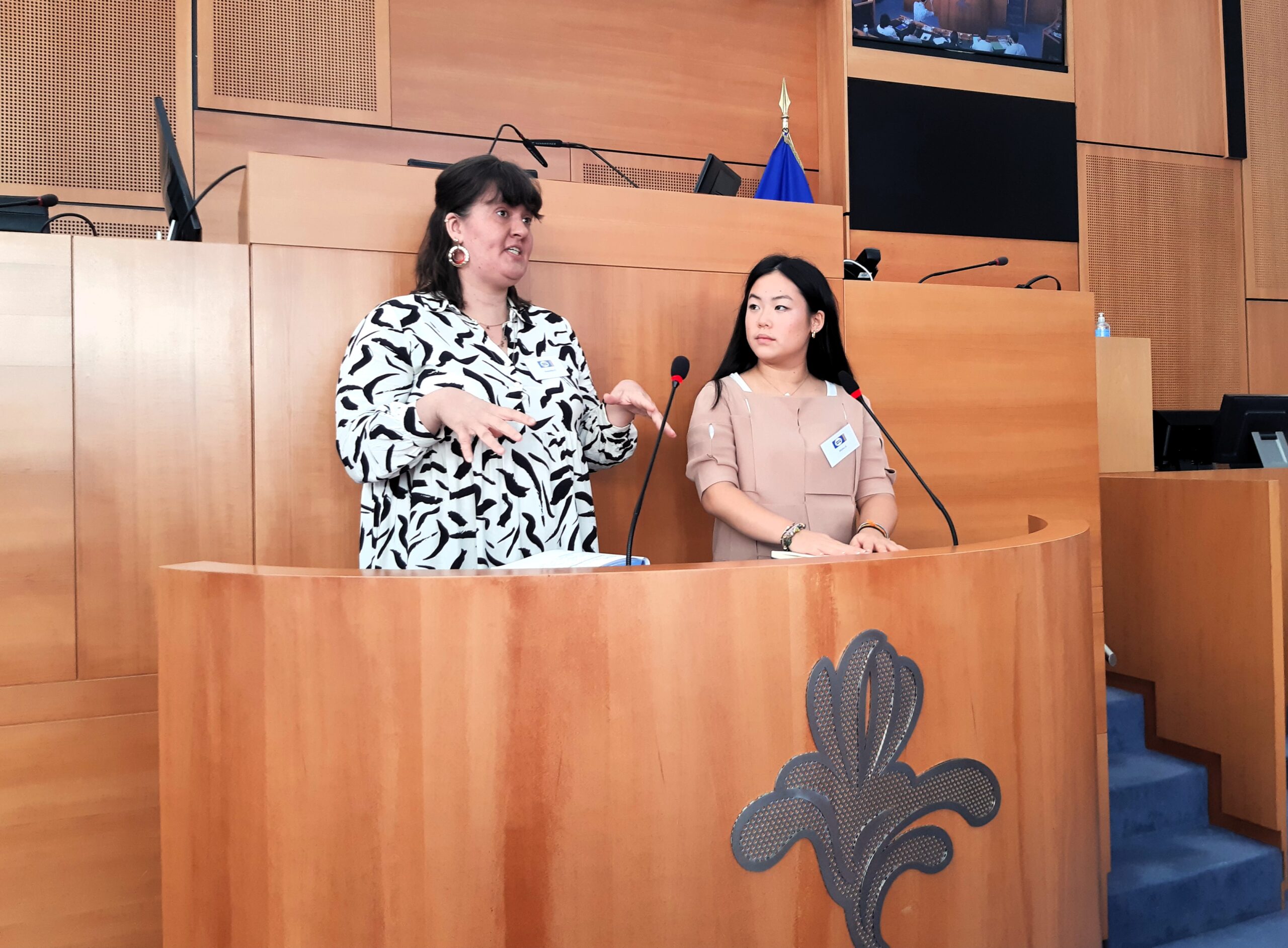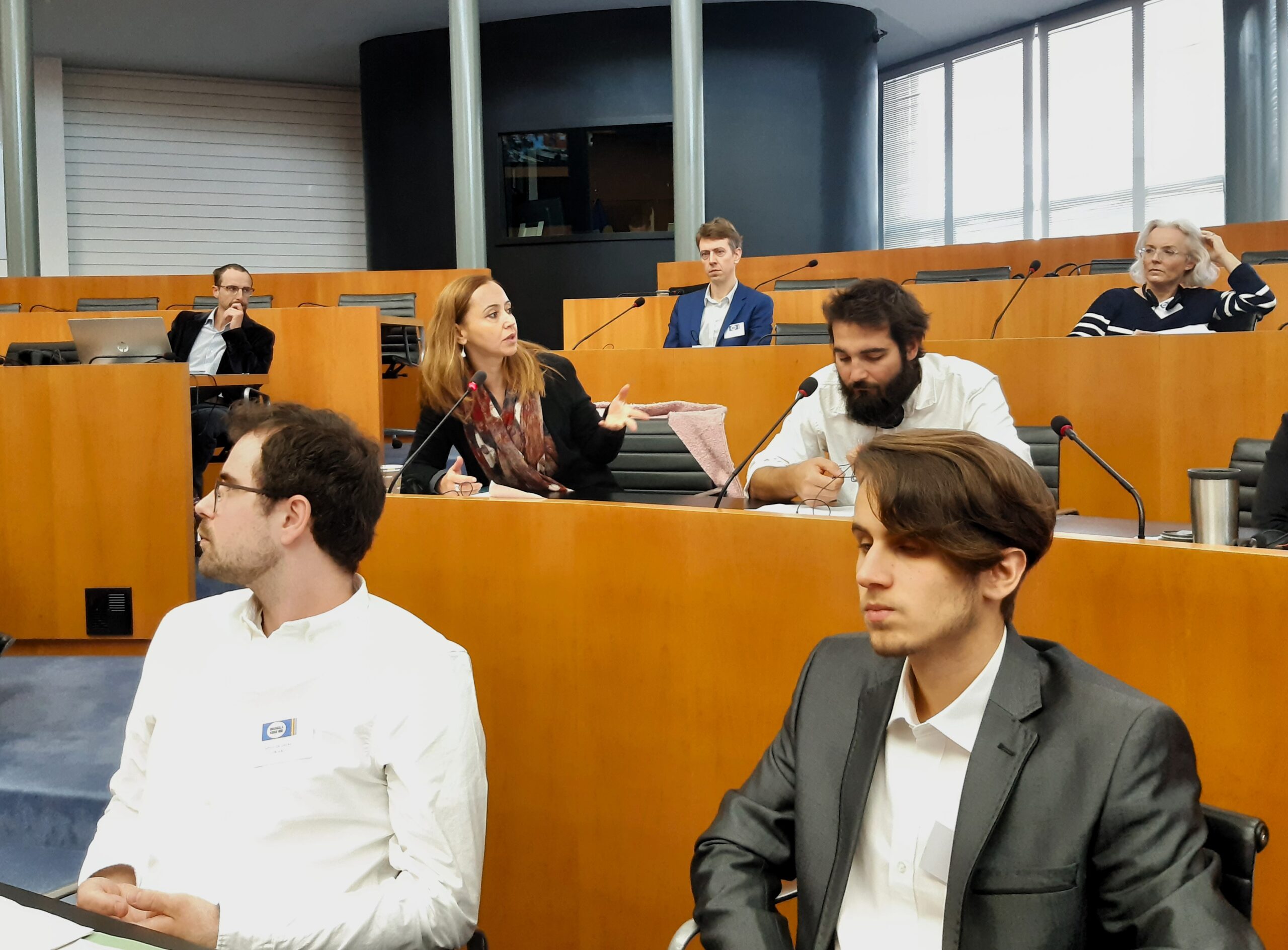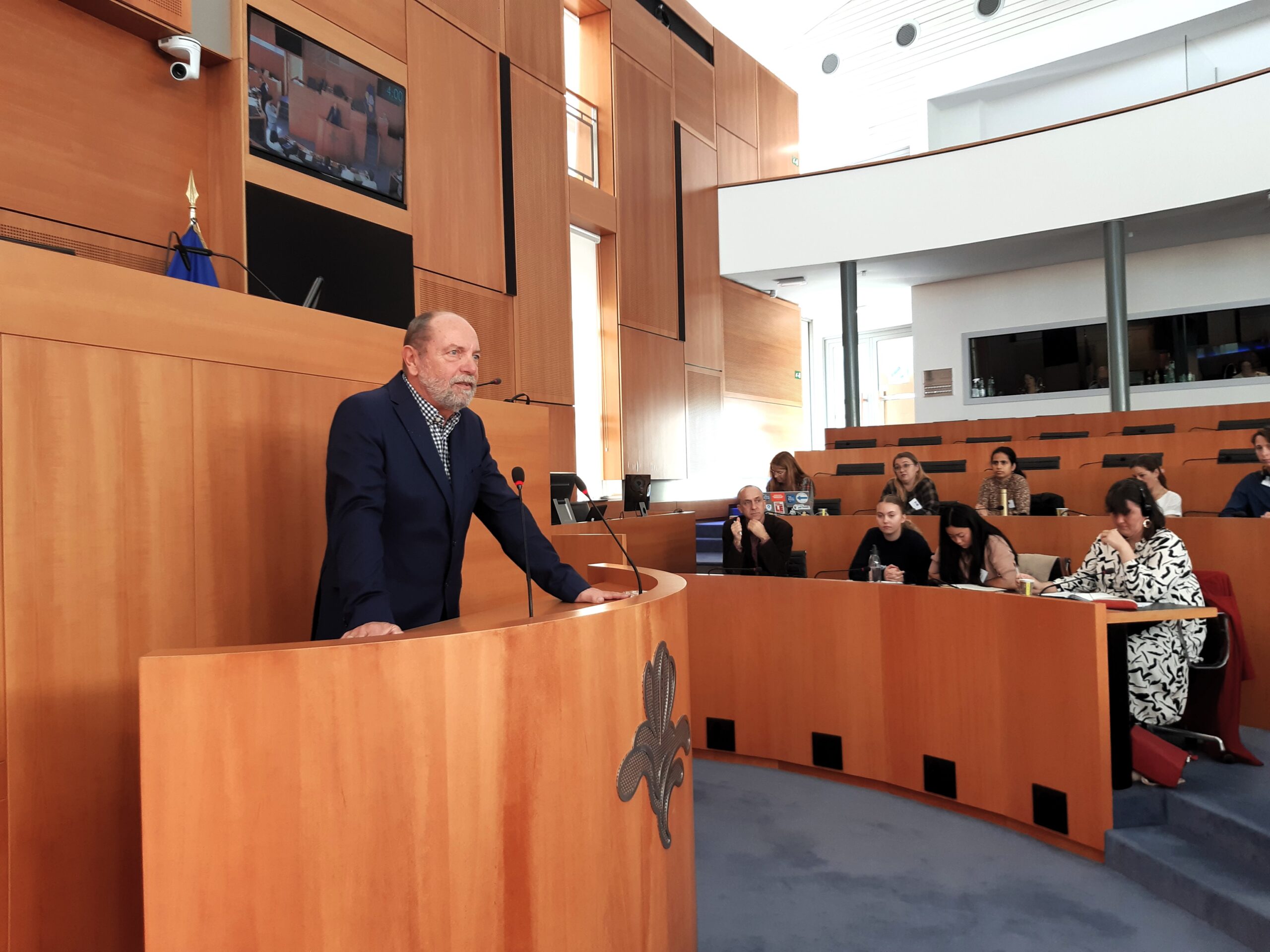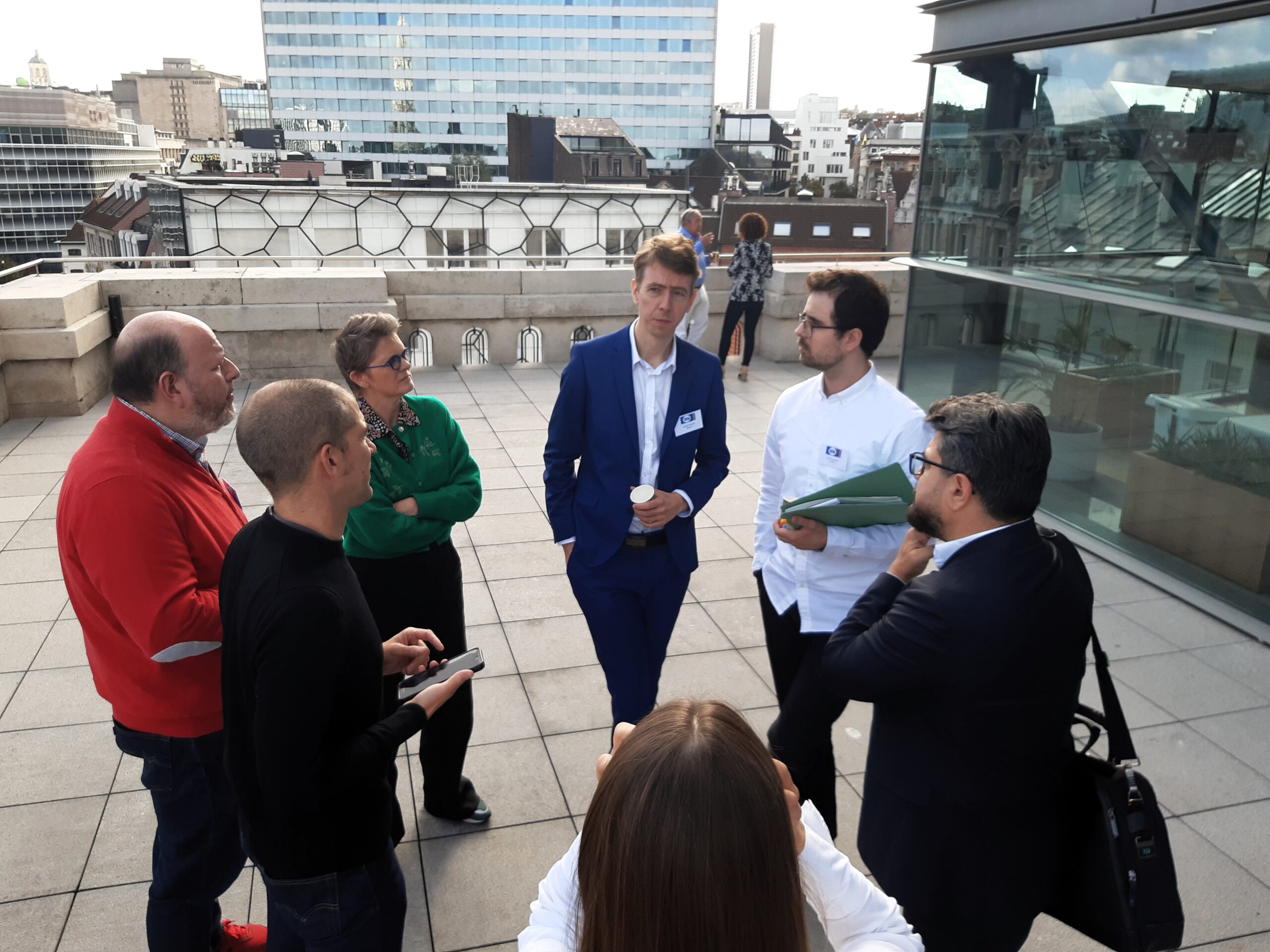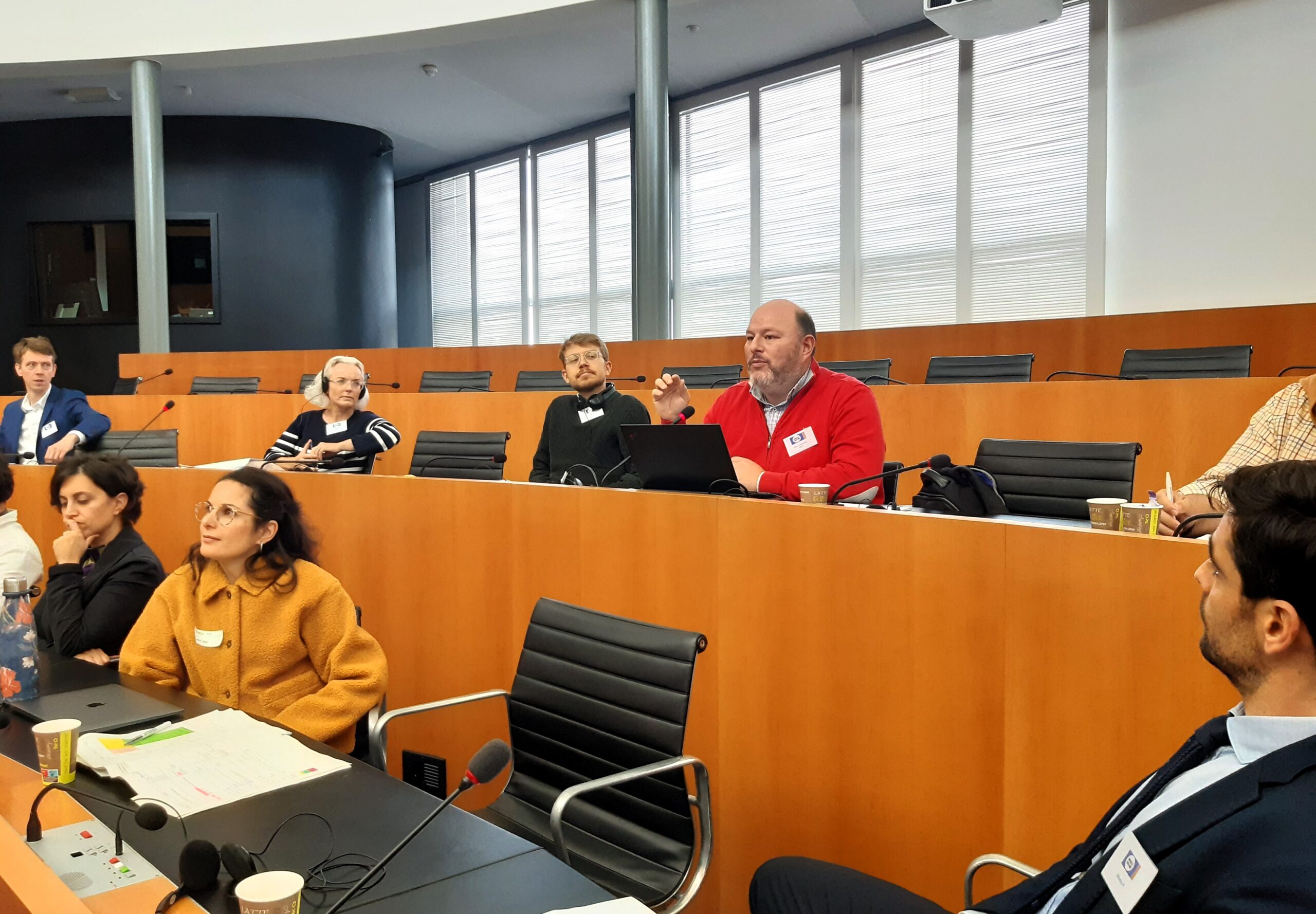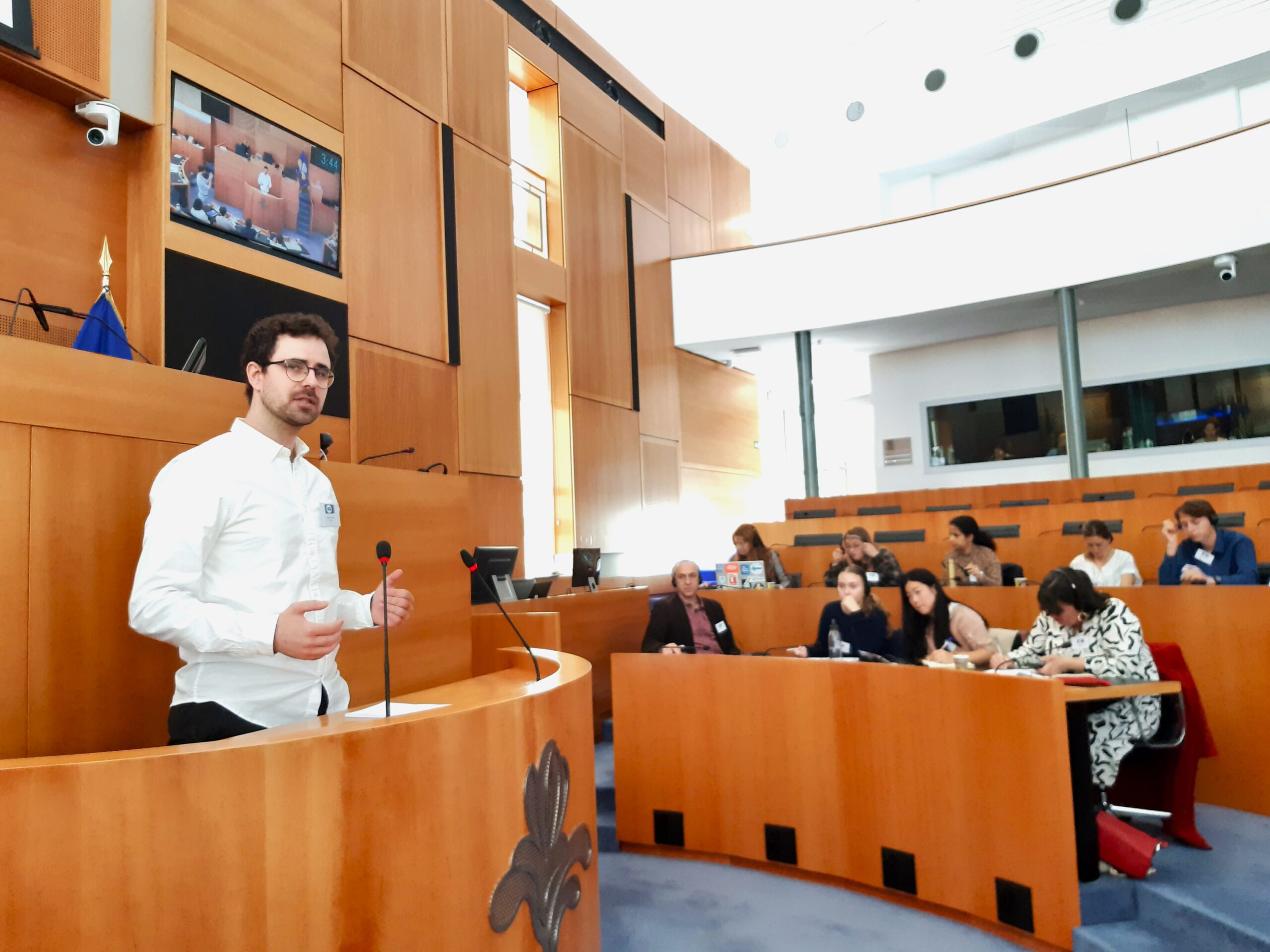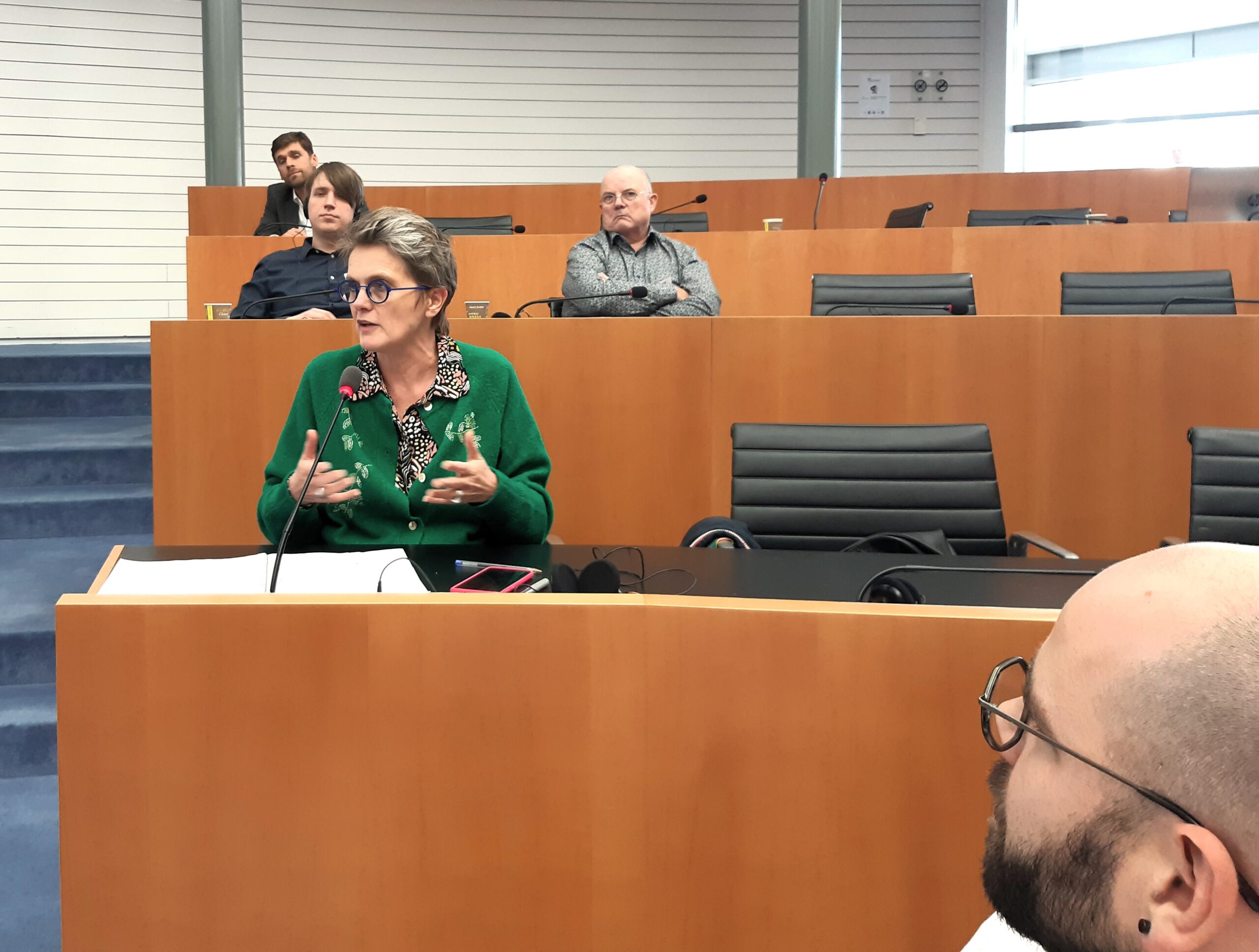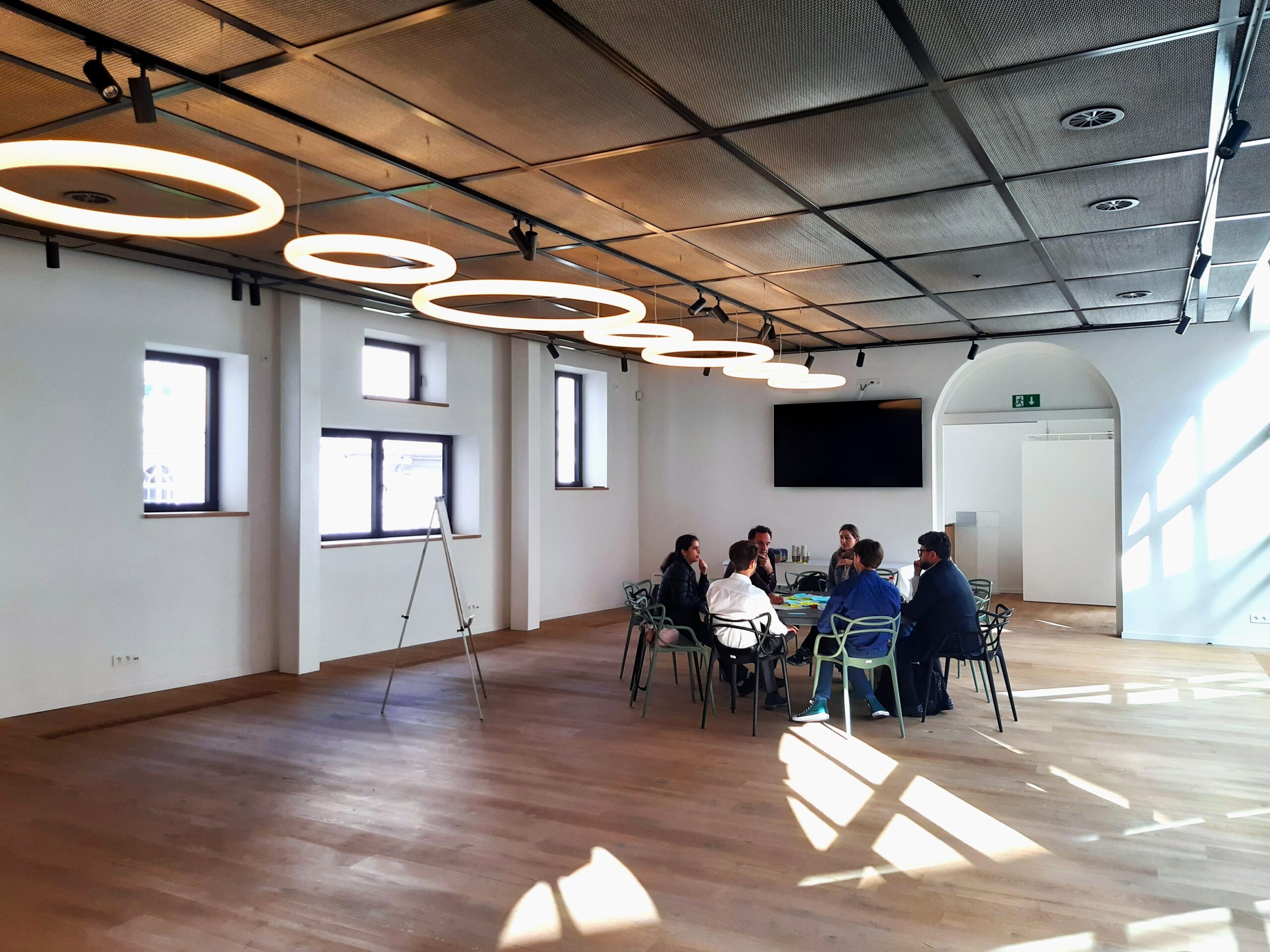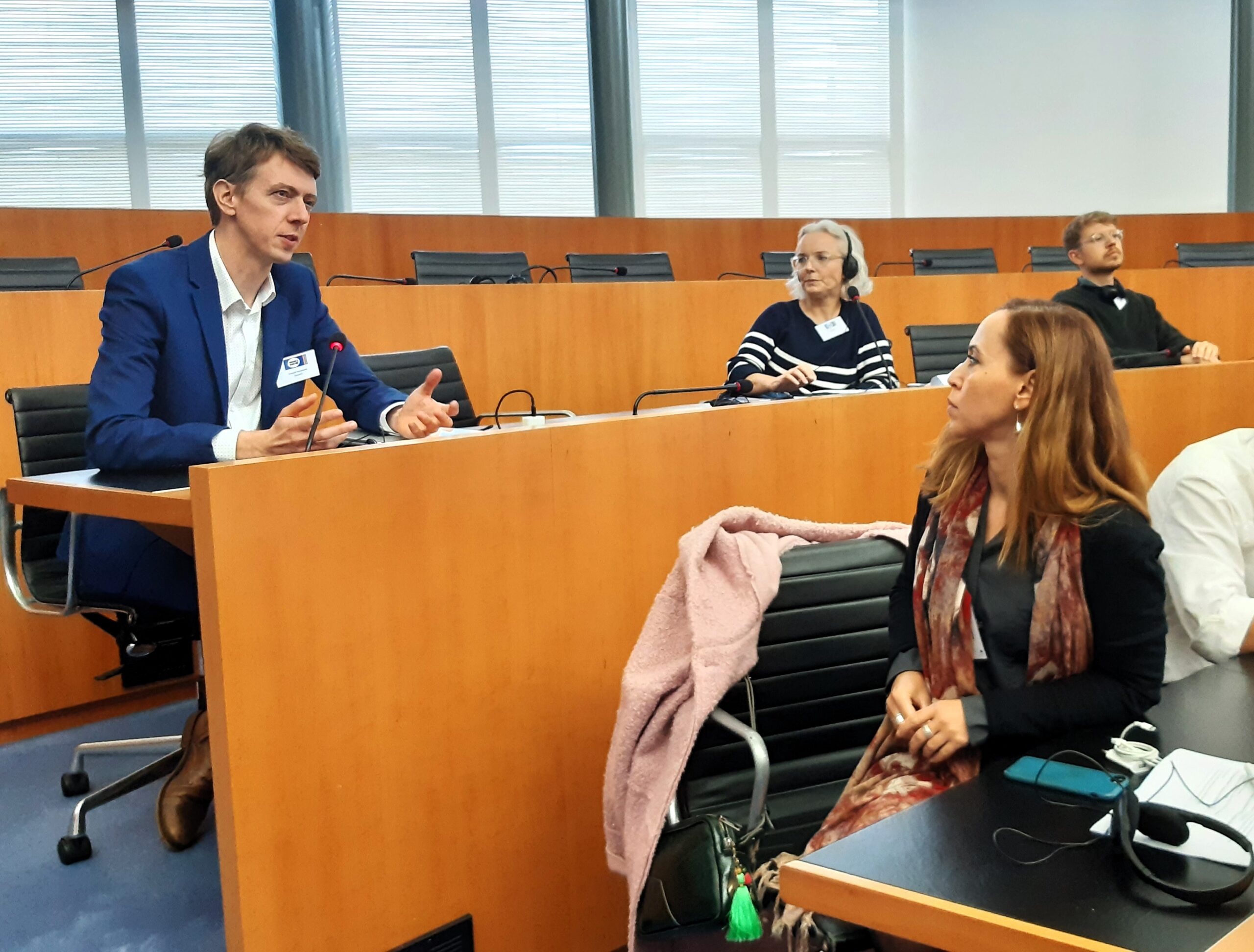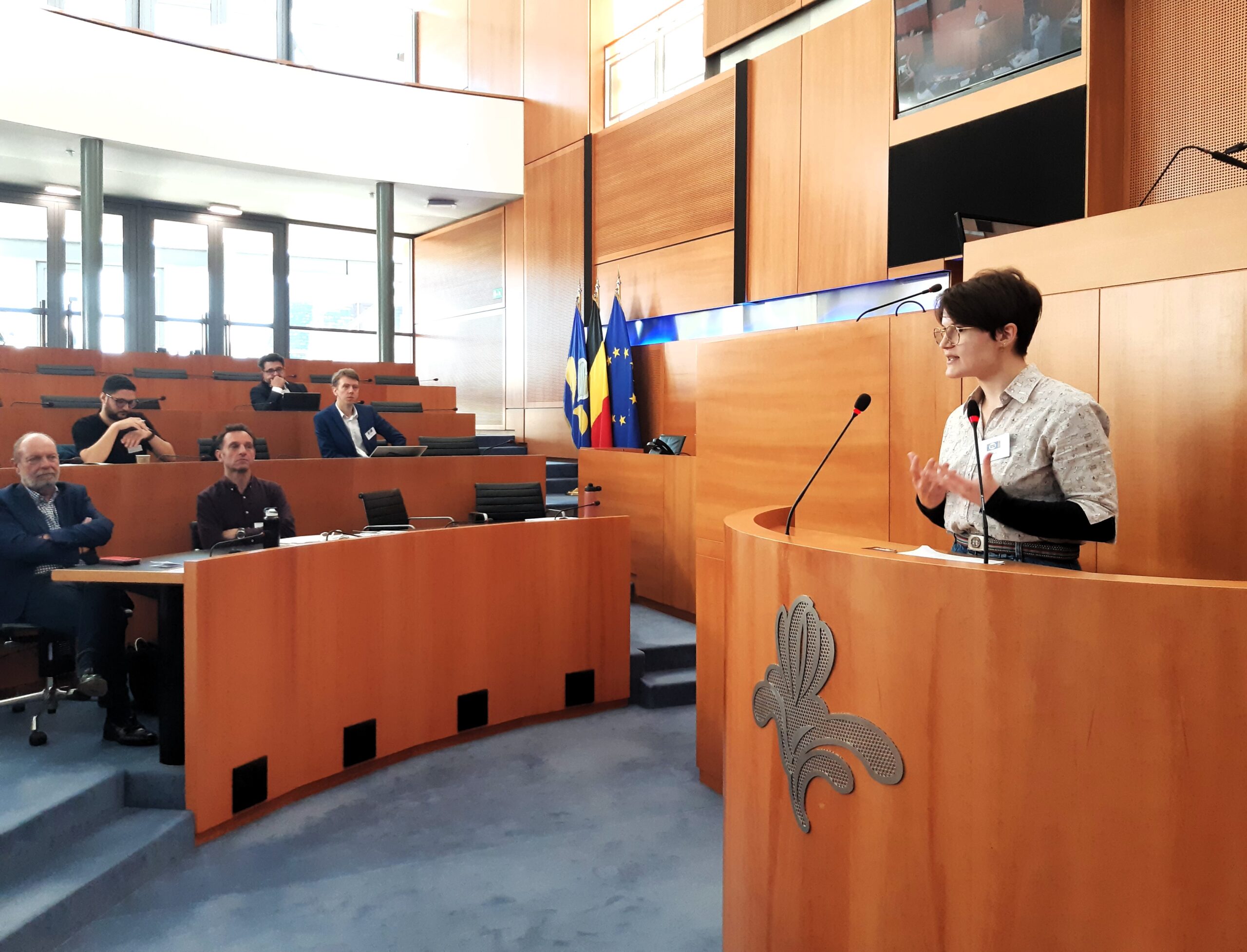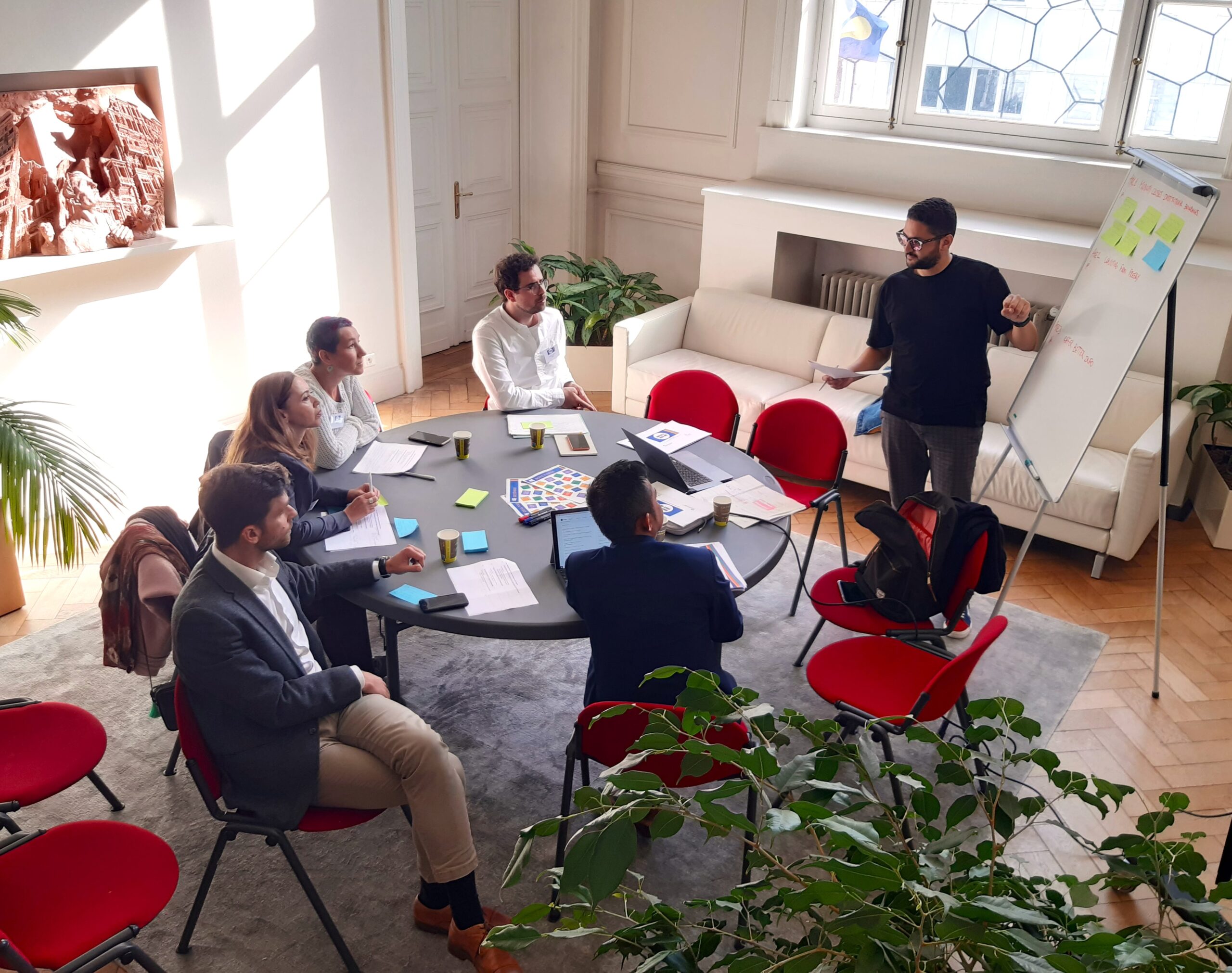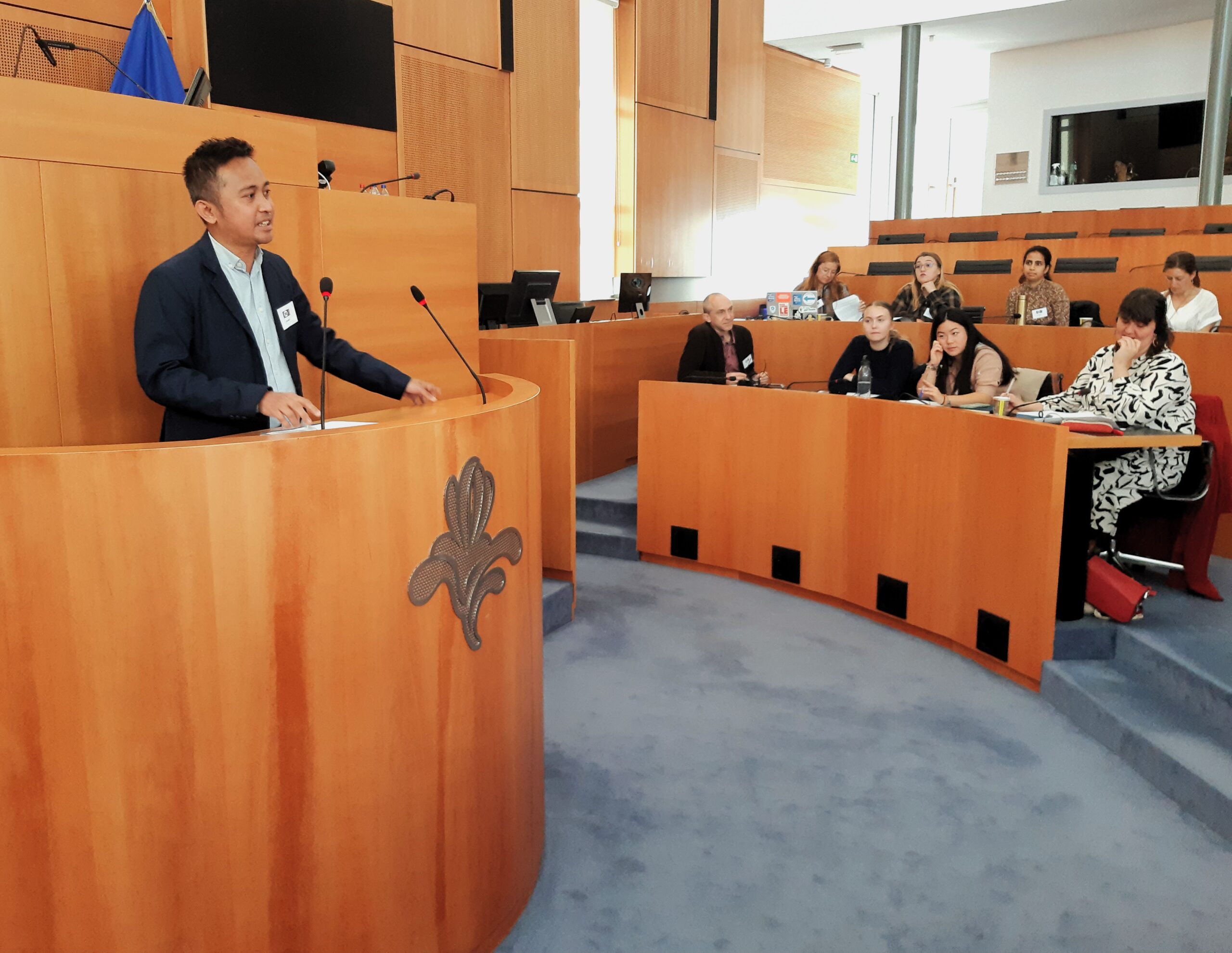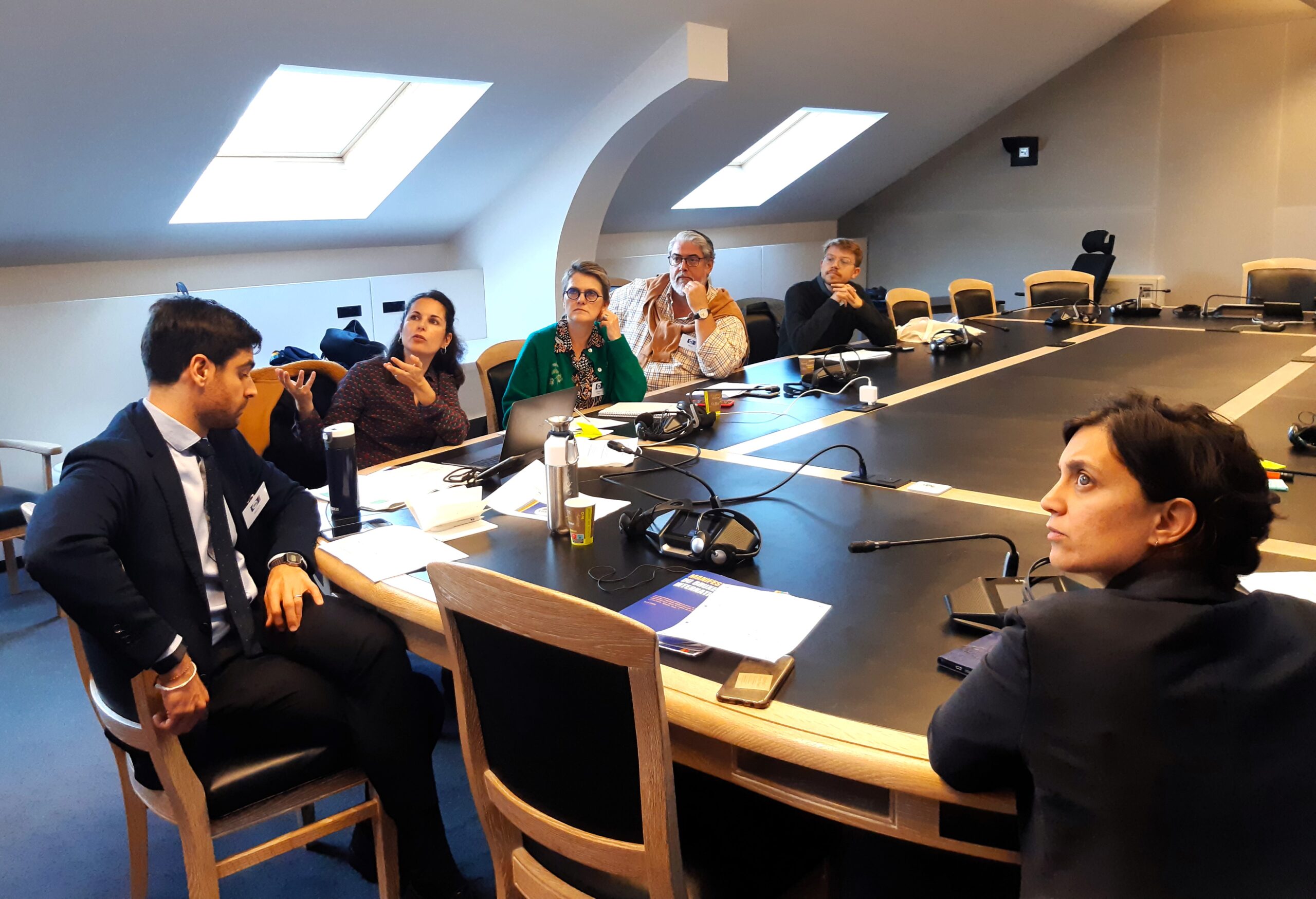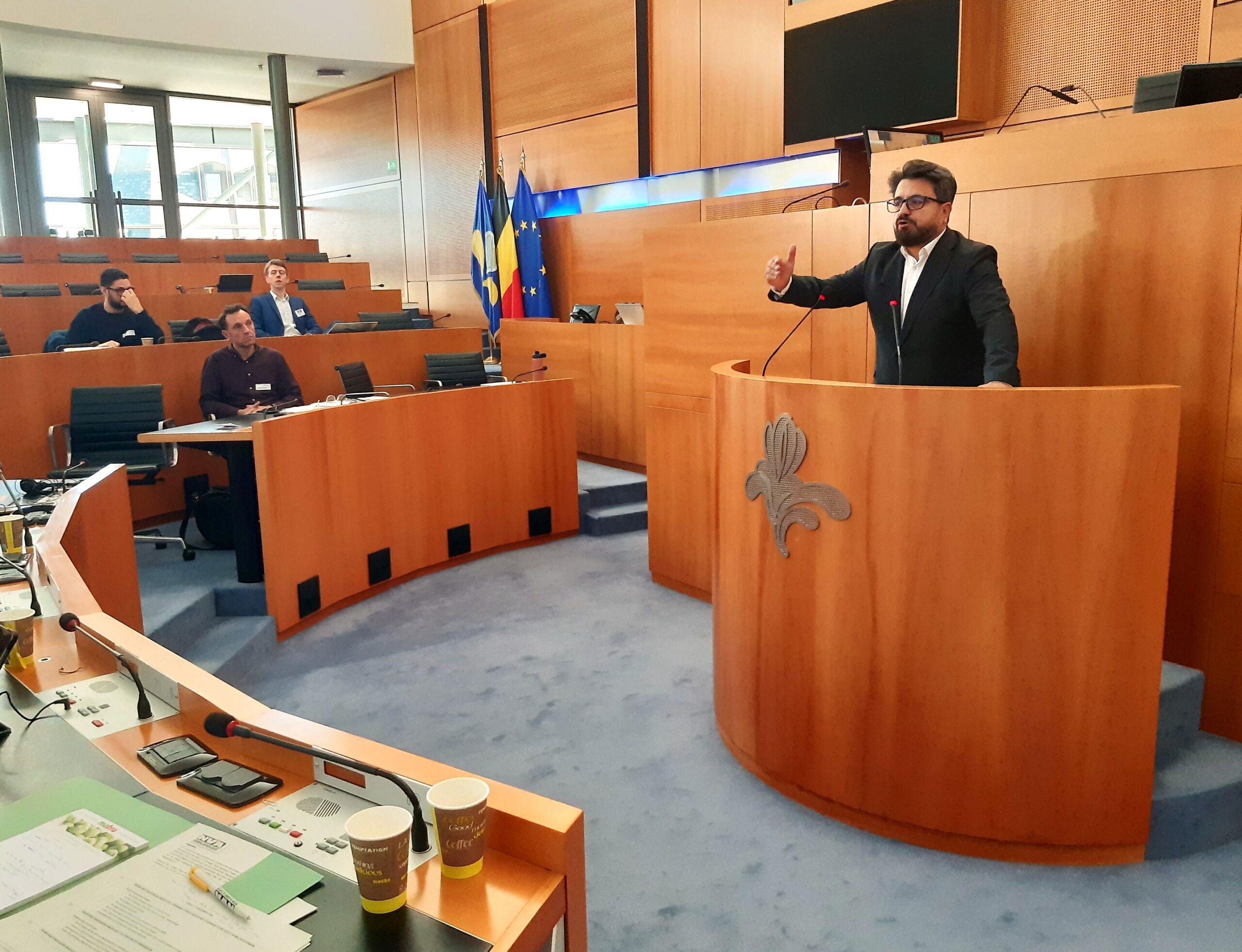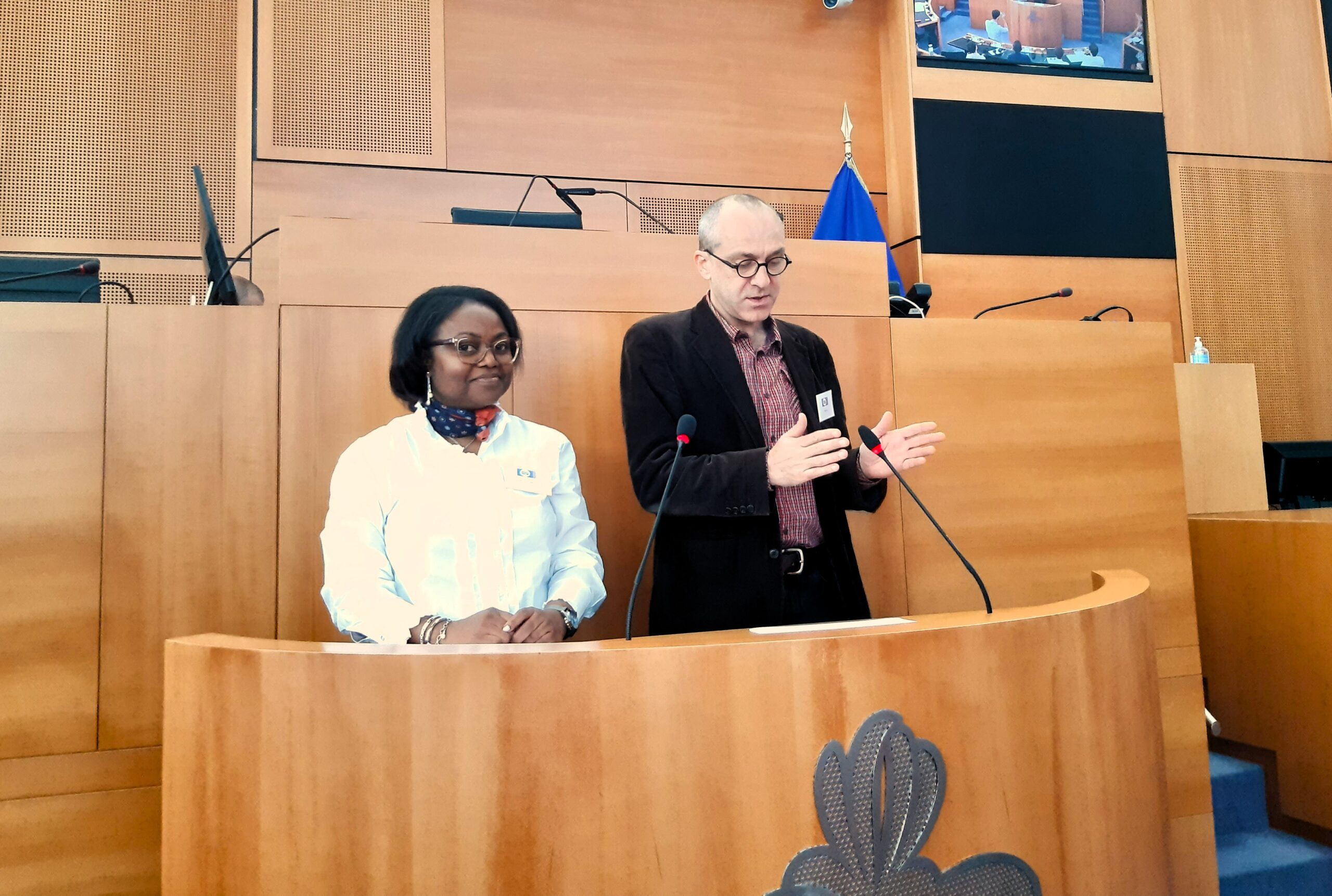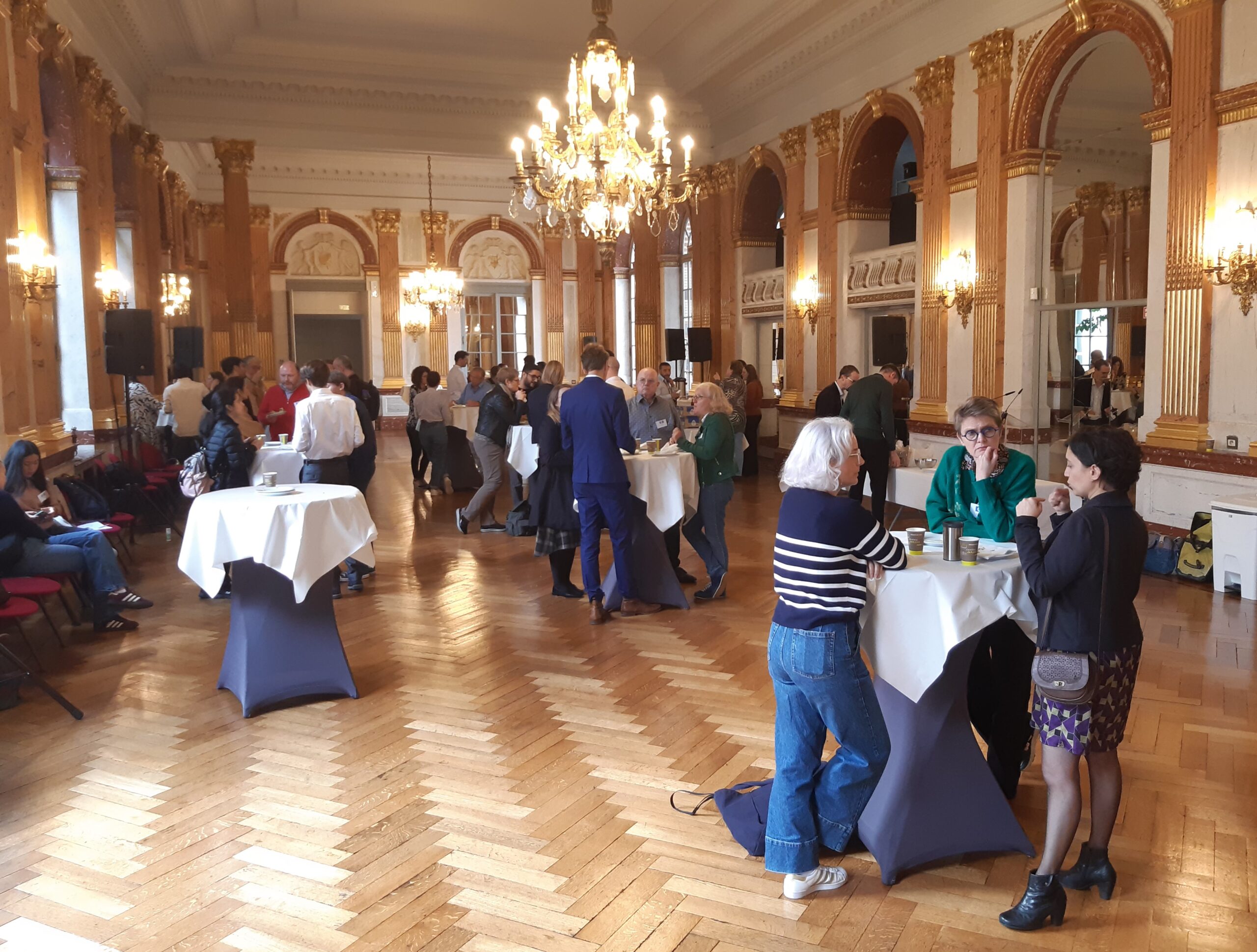Brussels Voice 23 reached its highpoint on 14 October. Our panel of International Brusselers spent the day working alongside MPs at the Parliament of the Brussels-Capital Region. A day of rich debate led to 15 detailed proposals for mobility policy.
After three workshops in the offices of commissioner.brussels, the non-Belgian residents participating in Brussels Voice 23 had developped a vision for mobility in the Region. Now it was time to head to Parliament and turn these 15 strategic priorities into concrete policy recommendations. To challenge and support them in this task, the panel was joined by six Members of Parliament and representatives of the political groups:
- Anne-Charlotte D’Ursel (MR) – President of the Mobility Committee
- Ibrahim Donmez (PS) – Member of the Mobility Committee
- Isabelle Pauthier (écolo) – Member of the Mobility Committee
- Marc Loewenstein (DéFI) – Member of the Mobility Committee
- Arnaud Verstraete (Groen) – Member of the Mobility Committee
- Simon De Decker (N-VA) – Representative of Cieltje van Acker (N-VA), Member of the Mobility Committee
The excitement was clear as our International Brusselers gathered once again, this time sitting at the benches of the Brussels Parliament’s luminous hemicycle. For most of them it was a first visit to the house of Brussels democracy, but Secretary-General Hugues Timmermans insisted that they should feel at home there as citizens of Brussels. Anne-Charlotte D’Ursel then formally opened the day in her role as President of the Mobility Committee, before Brussels Commissioner to Europe and International Institutions Alain Hutchinson reminded the participants of how important the international communities are to Brussels.
Down to the deliberations!
With the panel warmly welcomed, it was time to get started on drafting the policy recommendations. The day followed a robust approach, largely modeled on the Brussels Parliament’s existing Deliberative Committees, which took place in three phases:
- INITIAL POSITIONS: Spokespeople for the Brussels Voice panel presented the strategic priorities developped in the workshops, then the MPs and political group representatives outlined the positions of their parties.
- DRAFTING: The participants split into sub-groups around the five topics, putting citizens and politicians together around the table. They dived into the details to draft concrete policy recommendations for all the strategic priorities.
- FINE-TUNING: These draft recommendations were presented to the whole group for a round of comments and observations. Then the sub-groups had a brief session to incorporate these remarks before presenting the final recommendations at the closing session.
The result is 15 new policy recommendations responding to the ambitions and priorities developed by the panel, which were generally acceptable to everyone who participated. A full report presenting all the proposals in detail will be submitted to the Parliament’s Mobility Committee for further reflection, so stay tuned for more news and reactions!
A mixed picture of mobility for International Brusselers
The results reveal an international community that is generally supportive of the Region’s ambitions to make green mobility the key to an accessible city of livable communities. However, the participants were critical of the institutional barriers to more integrated mobility systems – especially when it comes to better public transport connections with the periphery as an alternative to commuting by car. They also expressed concerns about safety on the roads and security in public transport spaces, particularly for vulnerable travelers. Finally, the recommendations call for a dedicated international bus/coach station, one the clearest echoes of the international origins of the participants.
